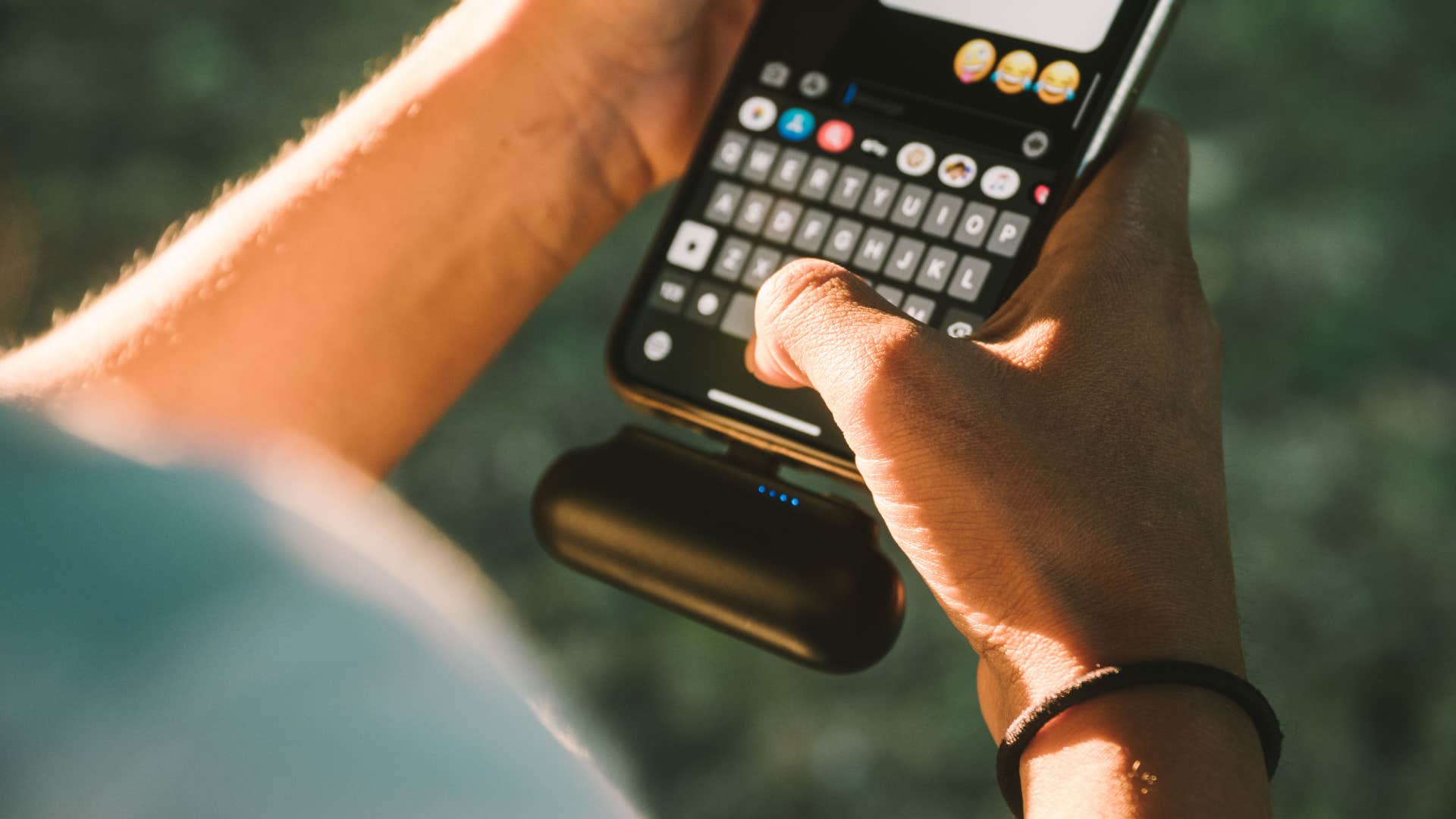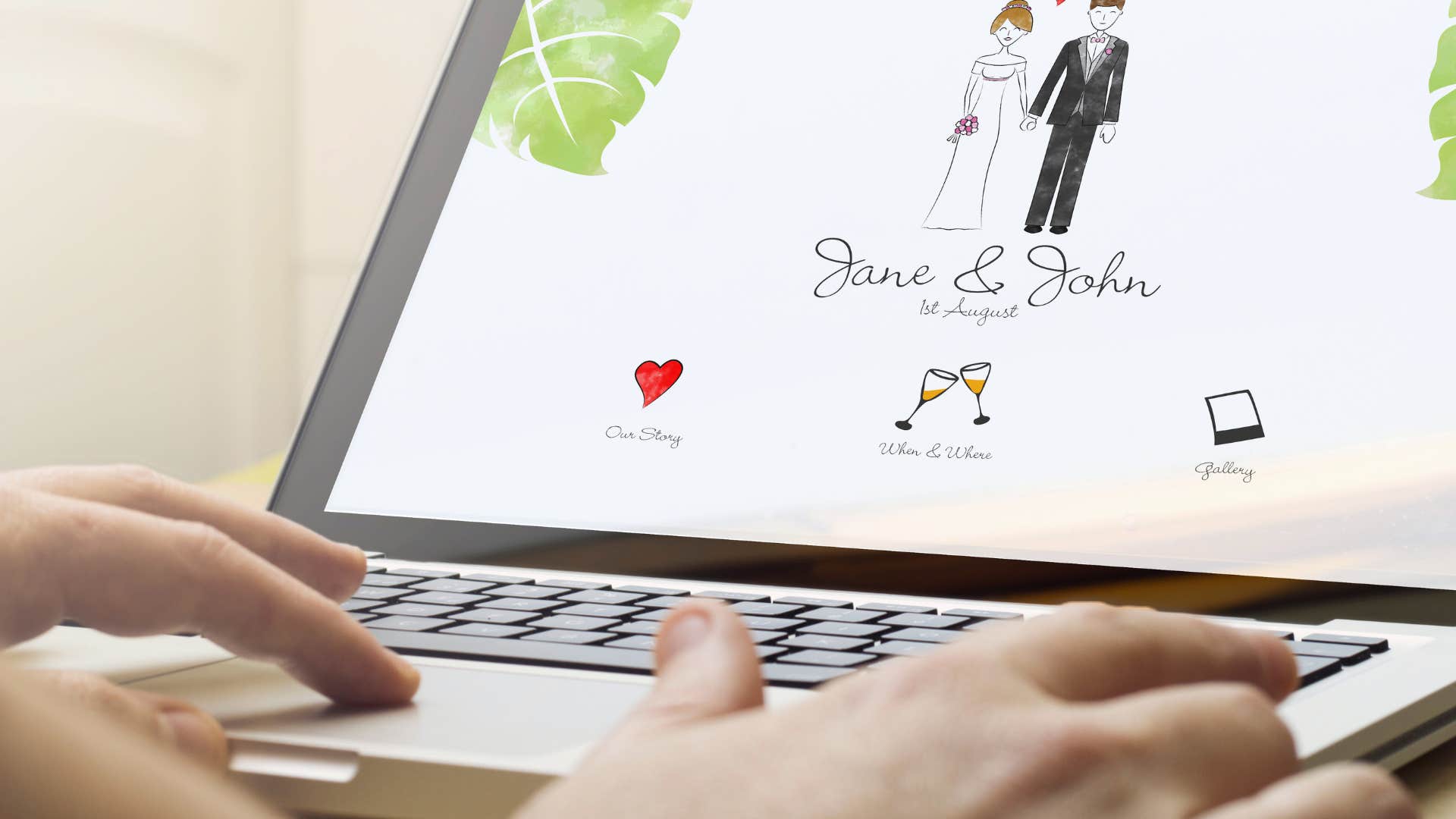11 Habits Gen Z Thinks Are Polite But Older Generations Find Annoying
With new generations come inevitable shifts in etiquette.
 Mix and Match Studio / Shutterstock
Mix and Match Studio / Shutterstock While the goals of courtesy and social norms about politeness are often the same – to be kind, respectful, and to reduce conflict and confrontation – they shift alongside new, younger generations, technology, and social values. As a study published in the Annual Review of Psychology explains, some norms are stable and secure, but others, revolving around politeness, tend to shift as new generations gain influence and status.
That’s why there are many habits Gen Z thinks are polite, but older generations find annoying. Baby boomers, the Silent Generation, and Gen X surprisingly lived in a very different world. From the introduction of technology to new expectations for social interactions and a range of changing social values that influence each generation differently, it’s no surprise that a generational gap exists.
Here are 11 habits Gen Z thinks are polite but older generations find annoying
1. Texting instead of calling
 filadendron from Getty Images Signature via Canva
filadendron from Getty Images Signature via Canva
Many younger generations are hesitant about talking on the phone and generally prefer more offline communication for staying in touch with people, like texting. A Uswitch study even found that around a quarter of Gen Zers don’t pick up their phone calls at all, as they are anxious about talking on the phone, especially when it’s unexpected.
That’s why sending a text is one of the habits Gen Z thinks are polite, but older generations find annoying. Even though older generations like the baby boomers prefer calling as a sentimental, more respectful option for chatting online, younger generations are coping with their social anxiety and need for convenience by doing the opposite.
2. Scheduling video and phone calls in advance
 StefanDahl via Canva
StefanDahl via Canva
If they can’t get out of an actual phone or video call with a text message or email, Gen Zers believe it’s polite to schedule it in advance. They find the unexpected nature of these calls to be even more anxiety-inducing because they don’t have time to regulate and prepare.
Gen Z deals with phone anxiety every day, which is ironic considering they’re one of the first generations to grow up, learn, and enter adulthood amid the digital landscape. But unannounced visits and phone calls are older generations’ love languages, so no wonder there’s a clash of values.
3. Using emojis
 Karl Solano from Pexels via Canva
Karl Solano from Pexels via Canva
To make one-word responses come across better and to clear up any passive-aggressiveness, Gen Z often uses emojis to clear up misunderstandings. Whether it’s a heart, a smiley face, or some other trending facial response, they are careful about not using one-word responses or sharp punctuation when they’re not upset.
Baby boomers may find emojis not only unnecessary, especially in workplace communications, but also impolite and strangely disrespectful. They personally know what they mean, and if someone has a problem with it, they can talk to them face-to-face.
4. Saying no to protect their peace
 Zmaster from Getty Images via Canva
Zmaster from Getty Images via Canva
There’s a fine line between saying “no” to plans to take care of your own well-being and chronically canceling while using “self-care” or “boundaries” as an excuse. Both Gen Z and their older counterparts walk both sides of the aisle and critique it often. For Gen Zers, setting boundaries and protecting your peace are new-age ideas that hold significant value, mainly because they’re rooted in mental health.
That’s why they’re protective of their ability to say “no” and cancel plans, even at the expense of someone else. It’s impossible to avoid every once in a while, but when it becomes a habit, it’s quickly one of the things that older generations find rude.
You’re wasting someone else’s time and failing to keep commitments. At some point, you actually do owe your loved ones your own discomfort or inconvenience.
5. Using headphones in public
 Africa Images via Canva
Africa Images via Canva
Many people believe that talking on speakerphone in public is one of the “unseen generational battles” occurring between Gen Z and baby boomers. Older generations don’t see a problem with speaking on the phone out loud, even in quiet or shared spaces, even if it means putting other people’s comfort at risk.
However, Gen Zers are careful about the way they act in shared spaces, often opting for headphones that are equally offensive and impolite to their older counterparts.
6. Sending a calendar invite for a hangout
 milindri from Getty Images via Canva
milindri from Getty Images via Canva
While boomers find stopping by unannounced and making last-minute plans to be polite and even sentimental, their Gen Z counterparts plan months in advance, using calendar invites to remind them when they’re supposed to spend time with their friends.
According to a survey from the American Psychological Association, Gen Z adults and young millennials say they are “completely overwhelmed” by stress, so it’s not surprising that they feel a need to literally carve out time on their calendars for fun.
7. Waiting for confirmation before coming over
 Cineberg from Getty Images Pro via Canva
Cineberg from Getty Images Pro via Canva
While dropping by unannounced used to be a polite gesture, it is now largely considered rude by many younger generations. Especially considering Gen Z often struggles with a certain level of social anxiety, needing time to prepare and regulate themselves before having interactions, these unannounced visits can completely disillude them and affect the whole day.
That’s why waiting for confirmation and reaching out before coming over is one of the things Gen Z thinks is polite, but older generations find annoying. They want to feel entitled to everyone’s space and to drop by when it’s convenient for them, but for Gen Z, that’s completely rude.
8. Not commenting on someone’s appearance
 Nicolas Menijes via Canva
Nicolas Menijes via Canva
Especially if it’s something that a person couldn’t change in a couple of minutes, like an out-of-place hair or a stain on their face, Gen Z isn’t going to comment on a person’s appearance. It’s one of the things Gen Z thinks are polite to avoid in conversations, but older generations find annoying.
Especially considering physical appearance, weight, and beauty standards play a big role in their present lives and played an important role in their formative years, of course, they want to speak about it often. It’s a part of their values and an even deeper part of their lingo and language.
It’s not always coming from a place of malicious intent. Sometimes, commenting on someone’s weight is intended to be a compliment, even if it comes across the wrong way or makes someone feel insecure.
9. Giving grace to service workers
 Dragonimages via Canva
Dragonimages via Canva
Many Gen Zers are adamant about treating service workers with respect, stacking plates before leaving, tipping 20%, and treating them as human beings. However, for many older generations, at least according to psychologist Reena B. Patel, many use service workers as their scapegoats, coping with their internal turmoil by being rude and impolite.
They say things like “it’s their job” or “I’m paying for this service” to justify their behavior, which is why simply giving grace is one of the habits Gen Z thinks are polite that older generations find annoying and unnecessary.
10. Sending online invitations
 milindri from Getty Images via Canva
milindri from Getty Images via Canva
Not only is sending the invite ahead of time a customary polite habit for all generations, but sending it online is often convenient for younger generations. They appreciate being able to send an invite without having to write a letter or spend money on postage, while their boomer counterparts may believe it’s “polite” to put in that kind of effort.
Of course, handwritten letters, notes, and invites often have many benefits for connections and closeness in relationships, but for Gen Z, why put in the effort when you have the accessibility and convenience of a phone?
11. Never leaving voicemail
 yipengge from Getty Images Signature via Canva
yipengge from Getty Images Signature via Canva
Despite being digital natives, there are many phone habits and online etiquette rules that younger generations vehemently dislike. From answering an unexpected phone call to leaving a voicemail, these are things that Gen Z can’t stand.
That’s why skipping voicemails and instead sending a text message are some of the habits Gen Z thinks are polite, but that older generations find annoying.
Zayda Slabbekoorn is a senior editorial strategist with a bachelor’s degree in social relations & policy and gender studies who focuses on psychology, relationships, self-help, and human interest stories.

